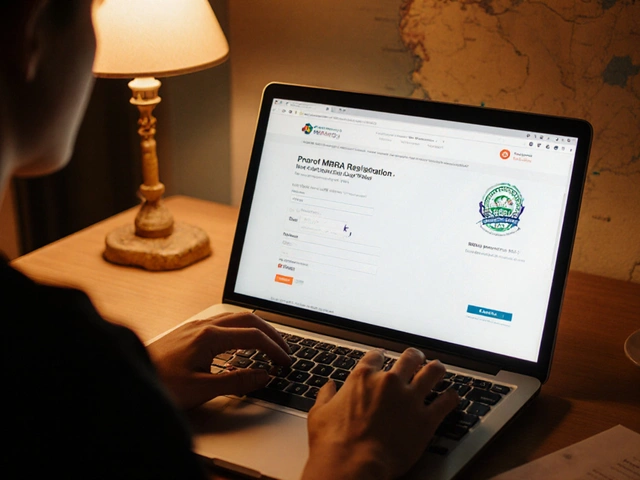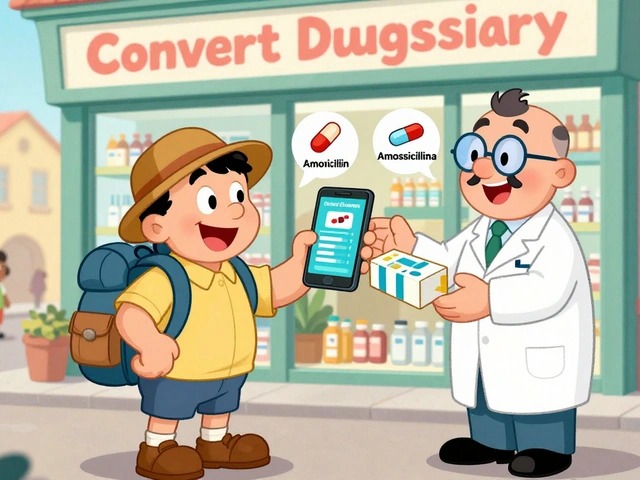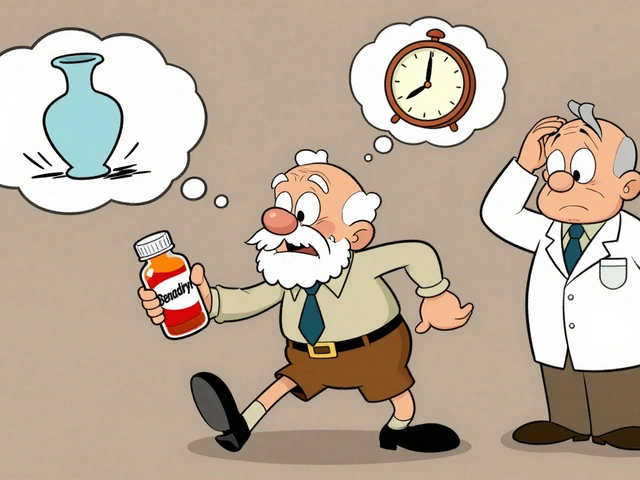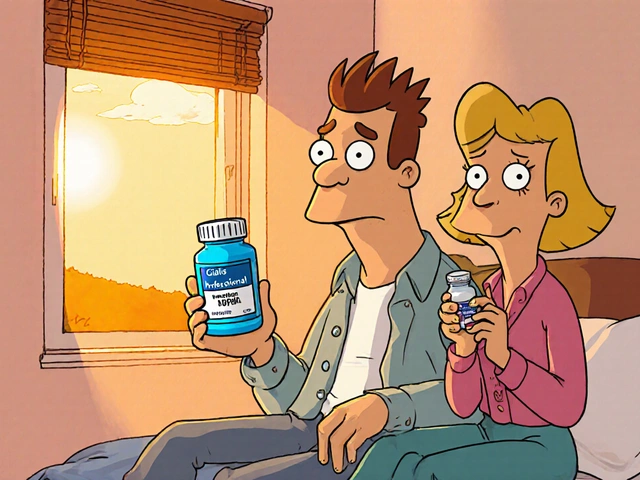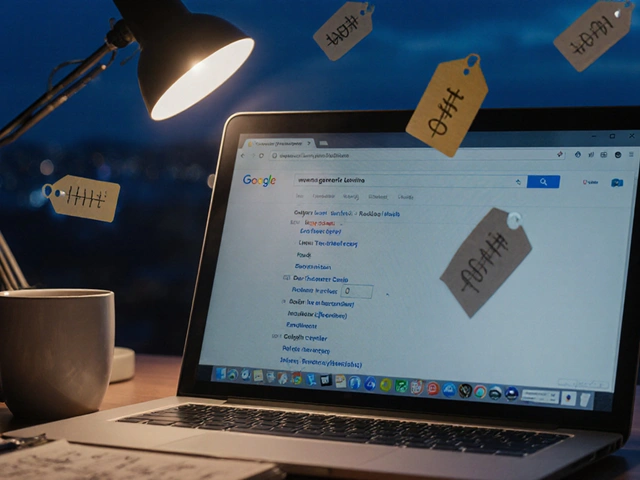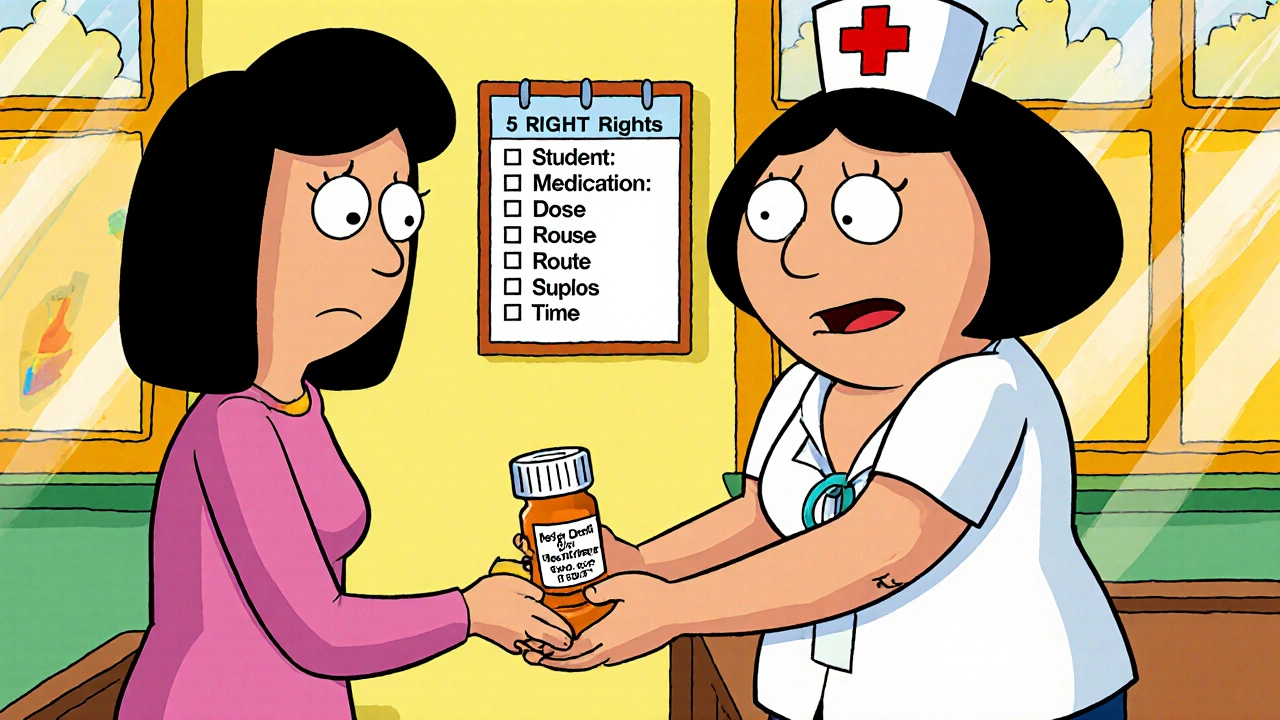
Every morning, thousands of children swallow pills, use inhalers, or get injections before lunch. For many, these aren’t optional - they’re life-saving. But when a child is at school, who makes sure the right medicine goes in the right mouth at the right time? As a parent, you’re not just sending your child to class - you’re entrusting their health to a system that, if not done right, can put them at risk.
Why School Medication Safety Matters
About half of all school-aged kids take some kind of medication during the day - whether it’s for asthma, ADHD, diabetes, allergies, or seizures. That’s not rare. It’s normal. But here’s the problem: without clear rules, mistakes happen. A missed dose. A wrong pill. A medication left in a backpack. According to the American Academy of Pediatrics, schools with solid protocols cut medication errors by up to 75%. That’s not a small win. It’s the difference between a child having a normal day and ending up in the ER. The core of safe medication administration isn’t complicated. It’s built on five simple rules, known as the 5 Rights: right student, right medication, right dose, right route, right time. Sounds basic, right? But in a busy school with dozens of kids needing meds, even small slips add up. That’s why every step - from the bottle to the nurse’s office - has to be locked down.What Parents Must Do Before School Starts
You can’t just hand your child a pill bottle and hope the school figure it out. That’s not how it works. Every school district requires formal paperwork - and not just any form. It has to be signed by both you and your child’s doctor. The form isn’t a suggestion. It’s a legal requirement. It must include:- Your child’s full name
- The exact name of the medication
- The dose (e.g., 5 mg, 2 puffs, 0.3 mL)
- How it’s given (swallowed, sprayed, injected)
- When to give it (e.g., 8:00 a.m. and 3:00 p.m.)
- How long the prescription lasts
- Potential side effects
- Special instructions (like “take with food” or “avoid sunlight”)
- The prescribing doctor’s license number
How Medications Must Be Delivered to School
Never let your child carry their own medication to school unless it’s officially approved. Even then, rules apply. All medications - prescription or over-the-counter - must come in the original, unopened container from the pharmacy. That means no Ziploc bags, no pill organizers, no labeled containers from home. The label must match the form exactly. If the bottle says “take 1 tablet twice daily,” but the form says “1 tablet at lunch,” the school won’t give it. You must deliver the medication in person. No dropping it off at the front office. No leaving it in the carpool line. A parent or legal guardian must hand it to the school nurse or designated staff member. Both you and the nurse will sign a receipt. This isn’t bureaucracy - it’s accountability. If something goes wrong, they need to know exactly who brought it in and when. For refrigerated meds - like insulin or certain biologics - the school must store them between 2°C and 8°C (36°F-46°F) in a locked fridge, separate from food. No exceptions.Self-Administration: When Kids Can Give Themselves Meds
Some kids - especially older ones with asthma or diabetes - are capable of managing their own meds. But that doesn’t mean they can just grab their inhaler whenever they want. In New York, a child can self-administer only if:- The doctor writes a specific “Self-Medication Release Form”
- You sign it
- The school nurse has trained and observed the child doing it correctly
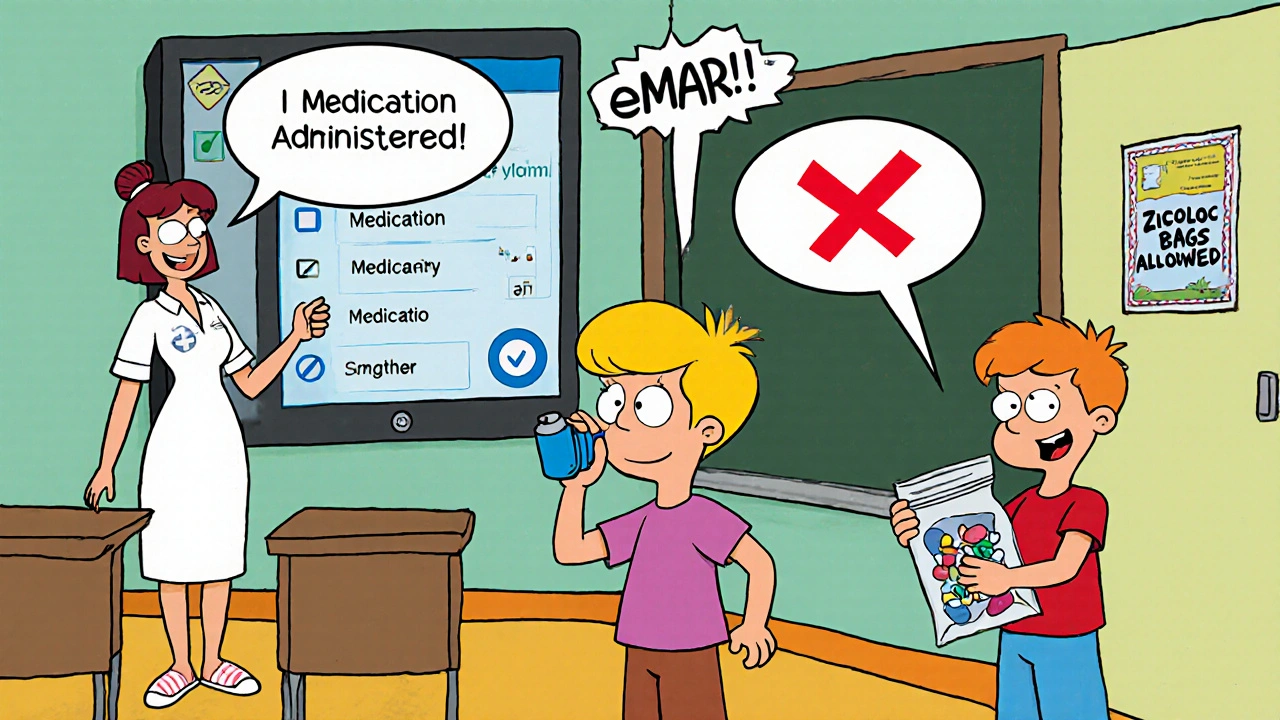
What Happens During the School Day
Once the meds are in, the school follows strict steps:- Only trained staff - usually the nurse or a certified aide - can give medication.
- Each dose is logged in an electronic system (eMAR), not a paper clipboard. Over 89% of schools now use these digital records.
- Medication must be given within 30 minutes before or after the scheduled time, unless the doctor says otherwise.
- If a child refuses to take the medicine, the school must call you immediately.
- Any side effects - even mild ones like drowsiness or nausea - must be reported to you and documented.
Changes and Emergencies
Life doesn’t stay still. Your child’s dose might change. A new side effect might show up. The medication might be discontinued. You must tell the school immediately. No waiting. No “I’ll send it next week.” According to the National Association of School Nurses, 18% of medication errors happen because parents didn’t update the school. That’s avoidable. Call the nurse. Email the office. Send a new form. Don’t assume they know. If your child has a reaction - rash, trouble breathing, vomiting - the school will follow its emergency protocol. But they can’t act fast if they don’t know the meds your child is on. That’s why your communication matters.End of the School Year: What You Must Do
Don’t forget this part. At the end of the year, you must pick up all unused medication. Schools are not pharmacies. They can’t keep pills over summer. In Frederick County, they throw out anything left behind. In New York State, if you don’t collect it by August 31, it’s discarded. No warnings. No extensions. Why? Because expired meds, old prescriptions, and unlabeled bottles are safety hazards. One school in Ohio found 47 unclaimed bottles in a drawer last year. Some were 3 years old. None were safe to use. Plan ahead. Mark your calendar. Go get your child’s meds before the last day of school.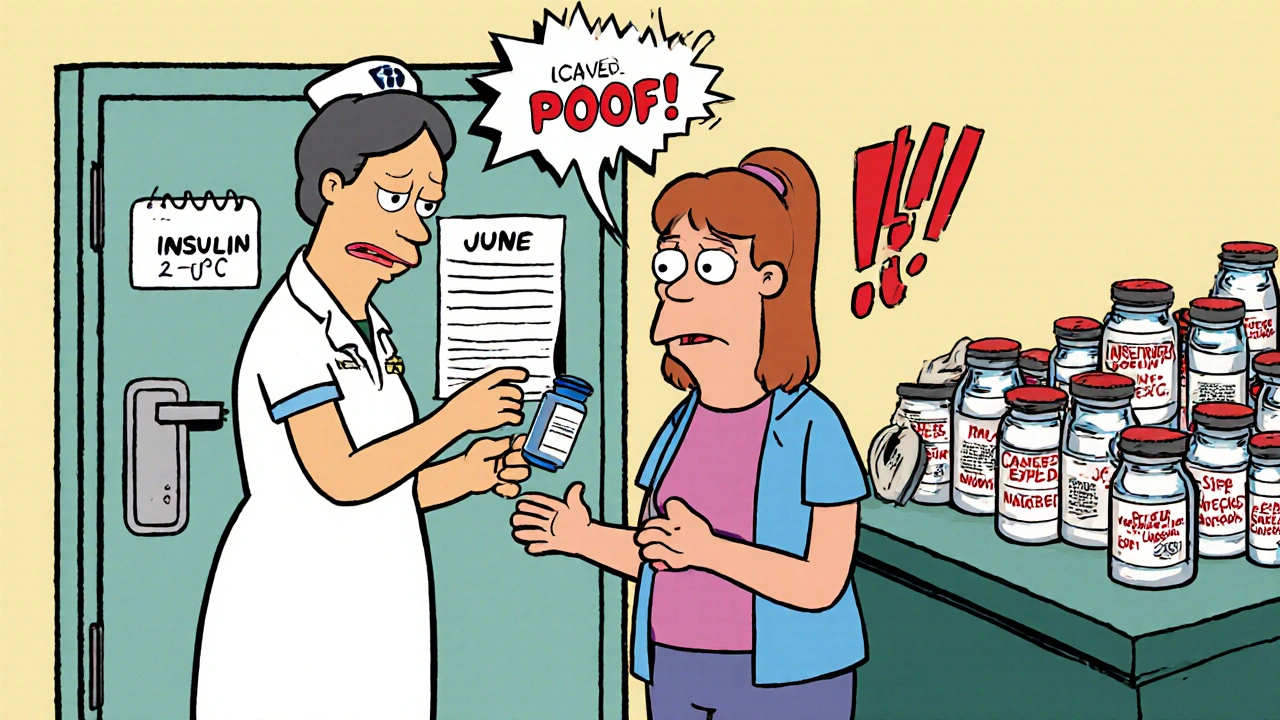
What’s Changing in the Next Few Years
Schools aren’t standing still. More kids are needing mental health meds - anxiety, depression, ADHD - and that’s driving big changes. By 2026, many states plan to standardize digital medication forms so you don’t have to fill out different paperwork for every district. By 2028, some schools may use fingerprint or ID badge scans to verify the student before giving a dose - cutting down on mix-ups. Some districts are testing apps that send you a text every time your child gets their medicine. One pilot in California saw a 27% drop in parent calls asking, “Did they take it today?” The future is clearer records, better tech, and more student involvement. But the foundation hasn’t changed: your role is still the most important.What Happens If You Don’t Follow the Rules
You might think, “My child’s fine. Why all this fuss?” But here’s what the U.S. Department of Education found: over 127 complaints about school medication errors in the last five years. The top two reasons? Medication not given as prescribed (41%) and poor documentation (29%). If a child has a seizure because their epilepsy med wasn’t given, or goes into anaphylactic shock because the EpiPen wasn’t on file, the school can be held legally responsible. But so can you - if you didn’t provide accurate, updated information. This isn’t about blame. It’s about safety. Every rule exists because someone, somewhere, got hurt.Final Checklist for Parents
Before school starts:- Get the Physician/Parent Authorization Form from the school
- Take it to your doctor - make sure every field is filled out completely
- Sign and return it by June 1 if possible
- Bring the medication in the original bottle - no exceptions
- Deliver it in person to the nurse
- Ask for a signed receipt
- Notify the school immediately if the dose, timing, or medication changes
- Check in with the nurse if your child reports side effects
- Ask if your child is allowed to self-administer - and if so, what training they’ve had
- Retrieve all unused medication before the last day
- Confirm what’s being discarded and what’s being kept
- Update forms for next year - don’t wait
FAQ
Can my child carry their own inhaler or EpiPen to school?
Yes - but only if the school has approved it. Your doctor must write a special form saying your child is capable of using it safely. The school nurse will observe your child using it correctly before allowing them to carry it. Even then, they must leave it with the nurse if they’re going on a field trip or to gym class. Never assume it’s okay without paperwork.
What if my child refuses to take their medicine at school?
The school will not force them. They’ll notify you right away. You may need to come in, talk to your child, or work with the nurse to find a better way - like switching to a different form of the medicine. Refusal is common, especially with kids who feel different or embarrassed. The goal isn’t to punish them - it’s to understand why and fix it.
Do I need to bring new medication every year?
Yes. Even if the prescription hasn’t changed, schools require a new doctor’s order every year. This ensures the information is current and reduces the risk of giving outdated or incorrect doses. Don’t wait until the last minute - renew it early.
Can the school give my child over-the-counter medicine like Tylenol or Benadryl?
Only if you’ve submitted a signed form specifically for that medicine, even if it’s available without a prescription. Schools can’t just hand out OTC meds because they’re “safe.” They need your permission and the doctor’s approval - same as prescription drugs.
What if my child needs a new medication mid-year?
Get the new prescription form signed by your doctor right away. Bring the new medication in its original bottle to the school nurse. Don’t wait. If the school doesn’t have updated paperwork, they can’t give the new medicine - even if it’s urgent.
Are schools required to give medication?
No - but they’re required to have a policy for it. Most public schools do provide medication administration because federal law (Section 504 and IDEA) says students with medical conditions can’t be denied access to education. If a school refuses to give a needed medication, they could be violating civil rights. If this happens, contact your district’s special education office.

